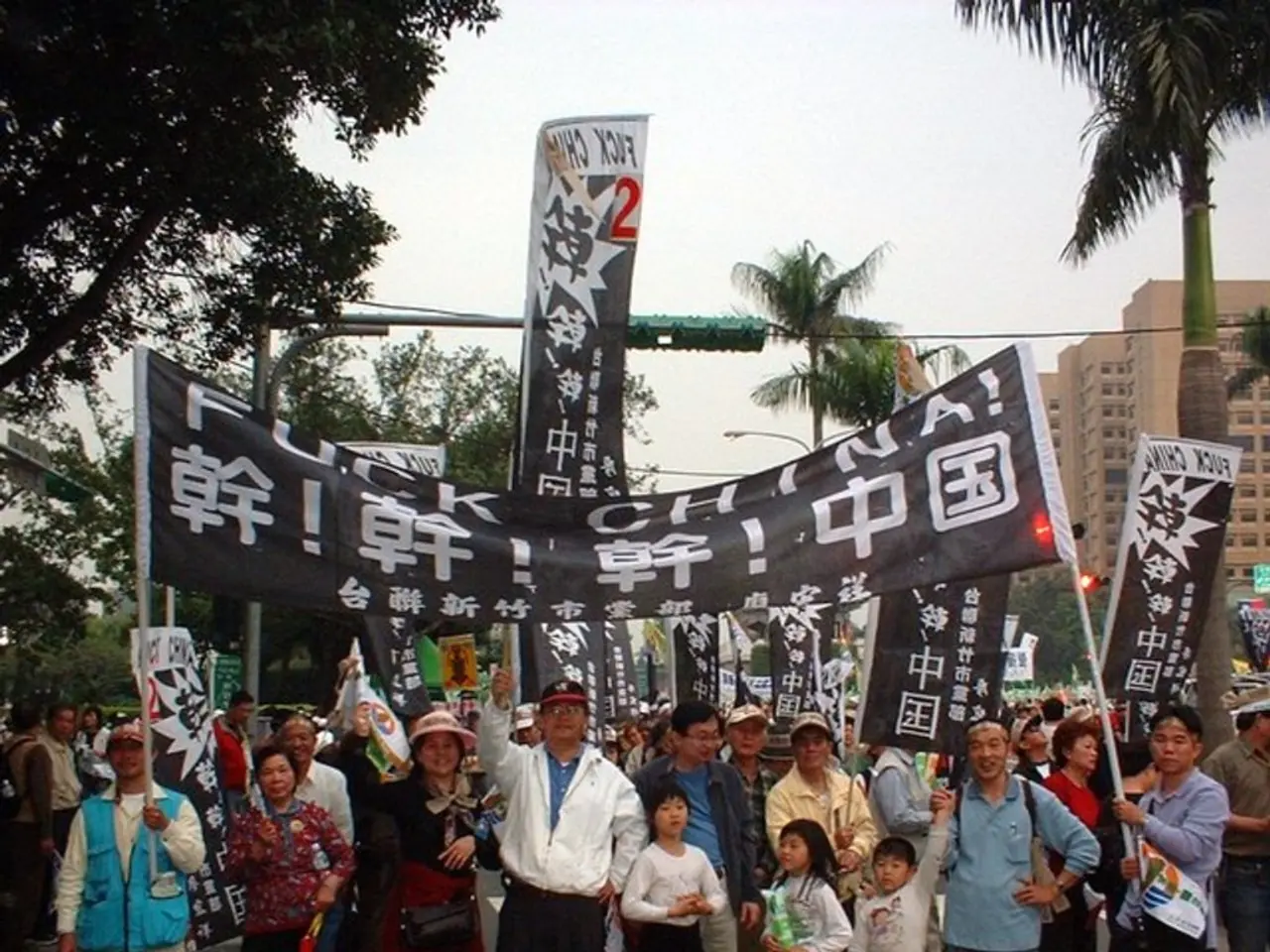Civil-Military Ties and the Predictable Political Public: Implications for the Future of Democratic Governance
In recent years, the balance in democratic civil-military relations within the United States has faced significant challenges. The lack of public support for democratic norms, coupled with increasing partisanship, has raised concerns about the nation's capacity to design strategy and mobilize military power effectively.
The veneration of senior military officers and the vilification that sometimes follows have not only harmed the United States' strategic capabilities but also blurred the lines between military and political spheres. This blurring can undermine democratic accountability and civil supremacy, as the military's influence in political matters and civilian affairs may grow unchecked.
One of the most striking warnings about this shift came from former Secretary of Defense Bob Gates in 2007, who cautioned that US statecraft had become dangerously skewed towards "the guns and steel of the military." However, this warning seems to have fallen on deaf ears, as the FY23 US defense budget weighs in at nearly $800 billion, compared to just $66 billion in FY22 for the Department of State and other international programs.
Partisanship plays a significant role in Americans' attitudes towards civil-military relations, with support for these norms often depending on the political affiliation of the president. This polarization has been evident in the expansion of presidential war powers and Congressional deference to military actions, which has complicated the traditional checks and balances envisioned by the founders.
The use of active military forces in domestic contexts, traditionally limited under laws like the Posse Comitatus Act, reflects strains on the customary civilian oversight and legal frameworks intended to maintain democratic governance. The deployment of active-duty Marines domestically without state request has raised questions about potential overreach and the erosion of established norms in civil-military relations.
The primary dangers associated with these trends include the potential erosion of civilian oversight of the military, the normalization of military involvement in domestic law enforcement without clear civilian demand, increased risk of political manipulation of the military, and weakening of democratic institutions as military power becomes entwined with partisan agendas.
In an effort to address these issues, the series "Rethinking Civ-Mil" aims to provide expert commentary on issues surrounding civil-military relations in the United States. Leaders are encouraged to push back against the culture of militarism, emphasize proper civil-military relations in civics education, and encourage military leaders to resist pressure to erode their apolitical standing.
Democratic theory demands that decision-makers be accountable to the people, and military officers should advise but not replace civilian leaders' judgment. Good policymaking rests on respect for, and critical engagement with, military officers' expertise when it comes to the use of force. However, Americans are often inclined to defer to the judgment of military officers in basic decisions regarding the use of force, which can lead to a dangerous concentration of power in the military.
The greater danger is that the US military may become, in the eyes of the public, a political actor just like any other in Washington. As a result of partisanship, the military has become a central actor in domestic political strife, with both Democrats and Republicans viewing senior military officers as allies or adversaries. This politicization of the military poses a significant threat to the foundational principle of civilian control and the democratic institutions that uphold it.
In conclusion, while democratic civil-military relations in the U.S. maintain core principles of civilian control, recent developments reveal tensions due to growing partisanship and public deference to the military. These trends pose real risks that may challenge the traditional balance essential to American democracy. Vigilance and robust institutional safeguards remain critical to preserving democratic governance and preventing military overreach.
- The blurring of military and political spheres, due to the veneration and vilification of senior military officers, can undermine democratic accountability and civil supremacy, allowing the military's influence in political matters and civilian affairs to grow unchecked.
- The increasing partisanship in Americans' attitudes towards civil-military relations has led to support for these norms often depending on the political affiliation of the president, complicating the traditional checks and balances in the use of military power.
- The deployment of active-duty military forces in domestic contexts, without clear civilian demand or adherence to legal frameworks, can normalize military involvement in law enforcement and potentially erode established norms in civil-military relations.
- Policymakers need to resist the dangerous concentration of power in the military by respecting civilian control and engaging critically with military officers' expertise, while military leaders must maintain their apolitical standing to preserve democratic institutions.
- The politicization of the military poses a significant threat to the foundational principle of civilian control, as the military has become a central actor in domestic political strife, with both Democrats and Republicans viewing senior military officers as allies or adversaries.







